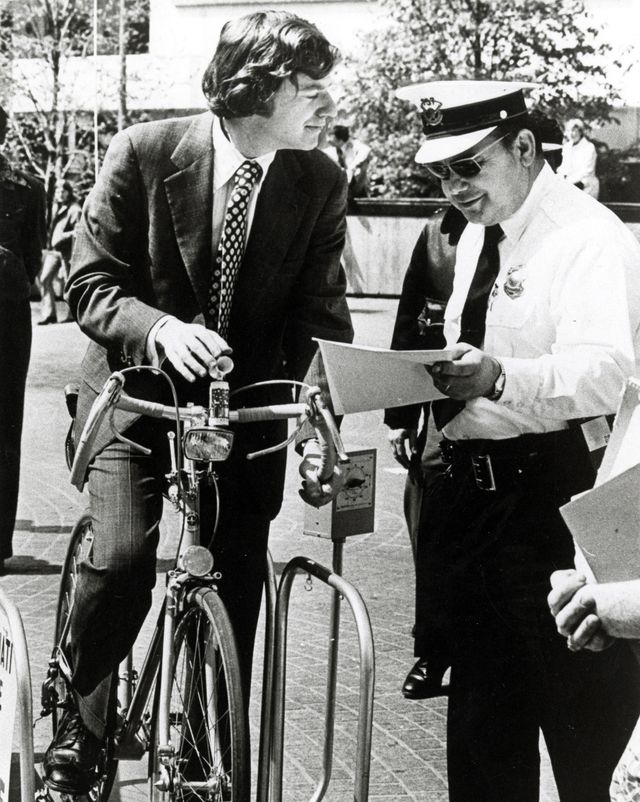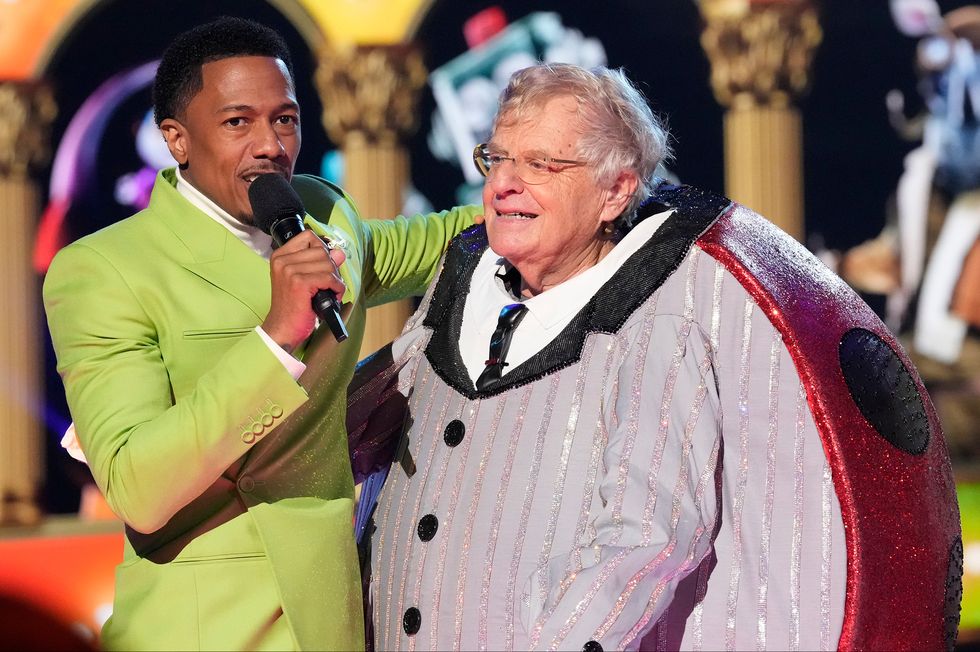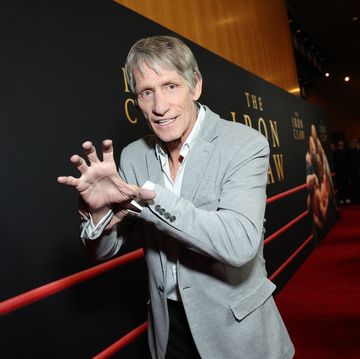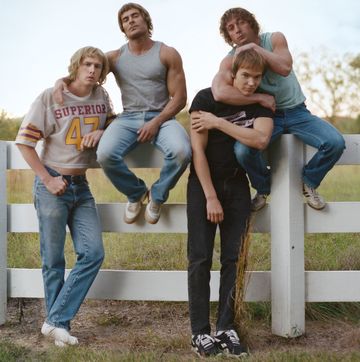Jerry Springer’s namesake talk show, which debuted in 1991, became a staple of American daytime television despite featuring controversial subjects like adultery, occasional nudity, and even physical violence. Critics said it was trashy and mirrored a decline in social values—TV Guide once named it the worst show in television history—but fans embraced the chaos and turned the program into a ratings juggernaut.
“If a legacy is what you’re best-known for, obviously I’m best known for the crazy show,” Springer, who died in April 2023, told the New York Post a year prior. “In a sense, I’ve become an adjective in the English language when people say, ‘I’m having a Jerry Springer moment,’ or when they say, ‘Don’t go Jerry Springer on me now.’ Everyone knows instantly what they’re talking about.”
Jerry Springer: Fights, Camera, Action, which debuts Tuesday on Netflix, examines the show’s rise to pop culture prominence. According to the streamer, the two-part docuseries includes “firsthand testimony and revelations from show insiders who lay bare the dark truths behind its entertaining facade.”
While his legacy is largely defined by the show’s memorable 27-season run, Springer—born Gerald Norman Springer in London on February 13, 1944—did much more than moderate familial dysfunction. He was first a politician in Ohio, serving on Cincinnati City Council then briefly as mayor. But similar to his TV future, it wasn’t without controversy.
Becoming Cincinnati Mayor
A political science degree from Tulane University and a law degree from Northwestern University set Springer up for his tenure in politics. He was an aide for Robert F. Kennedy’s presidential campaign in 1968, the same year he earned his law degree. Kennedy, the New York senator and brother of President John F. Kennedy, was assassinated by Sirhan Sirhan on June 5 of that year.
After moving to Cincinnati to work for the Frost & Jacobs law firm, Springer ran for the House of Representatives in 1970 as a Democrat. Despite being an anti-war candidate in a conservative district—he later proposed a ban on the drafting of Cincinnati residents for the Vietnam war as a councilperson—he still received 44 percent of the vote in the general election, though it wasn’t enough to unseat incumbent Donald Clancy.
Springer bounced back quickly and was elected to Cincinnati City Council in 1971 but unexpectedly resigned in 1974 for what he called “very personal family considerations.” According to The Cincinnati Enquirer, the real reason was that Springer was involved in a two-state prostitution probe. The following day, Springer held a news conference and alluded to the investigation. “When I resigned yesterday, I did so because I believed then as I believe now that there are some problems which are better faced as a private citizen,” he said.
In an admission appropriate for his future talk show, Springer testified in Kentucky court that he contacted the FBI after paying for two prostitutes with personal checks in December 1973 and January 1974. This didn’t stop him from winning his council seat back only a year later in 1975, aided by a series of television ads that directly addressed the scandal.
Springer became Cincinnati mayor in 1977 but served only one year. He then became a popular political commentator on local television, helping WLWT-TV rise to the top of the Cincinnati market ratings, according to the Associated Press (Editor’s note: WLWT is owned by Hearst Television). He ran for governor of Ohio in 1982 but didn’t secure the Democratic nomination.
Later, the TV star considered runs for the U.S. Senate and a second attempt as Ohio governor in 2018 but didn’t commit to the latter because of his age. That year, he turned 74.
What Else Did Jerry Springer Do?
Springer’s eponymous talk show, The Jerry Springer Show, debuted in September 1991. Initially focused on social and political topics—similar to that of popular host Phil Donahue—the program evolved dramatically to attract a younger audience, leading to the profanity-laced staple we know today.
Springer utilized his hosting ability for a variety of TV and stage roles throughout his career. He helmed the NBC performance competition America’s Got Talent during its second and third seasons, replacing Regis Philbin. Springer also hosted a live stage version of the The Price Is Right, emceed two Miss World and one Miss Universe pageants, and appeared as a guest host for WWE programming, including episodes of RAW in 2010 and 2014.
He tried his hand at game shows as well, hosting the dating competition Baggage for three seasons starting in 2010. The show featured a contestant vying for a date with three potential matches, who revealed progressively more weird and salacious things about themselves during the episode.
Springer’s involvement with reality TV competitions wasn’t limited to host. He competed in the Dancing With the Stars ballroom, appearing on the third season in 2006 and on stage as the “Beetle” on The Masked Singer in 2022.
One of his final TV gigs was starring in Judge Jerry, a daytime court show in which Springer moderated a variety of outrageous cases. It ran for three seasons before getting canceled in 2022.
Springer was also an actor, often playing himself in cameos. This was the case for television series The Simpsons, Married… with Children, Roseanne, The X-Files, and Sabrina the Teenage Witch. He also appeared in the movies Austin Powers: The Spy Who Shagged Me (1999) and Kissing a Fool (1998), as well as a starring role in the 1998 film Ringmaster. Springer played talk show host Jerry Farrelly, essentially a fictionalized version of himself.
His death at age 79 followed a brief illness.
Tyler Piccotti joined the Biography.com staff as an Associate News Editor and is now the News and Culture Editor. He previously worked as a reporter and copy editor for a daily newspaper recognized by the Associated Press Sports Editors. In his current role, he shares the true stories behind your favorite movies and TV shows and profiles rising musicians, actors, and athletes. When he's not working, you can find him at the nearest amusement park or movie theater and cheering on his favorite teams.














